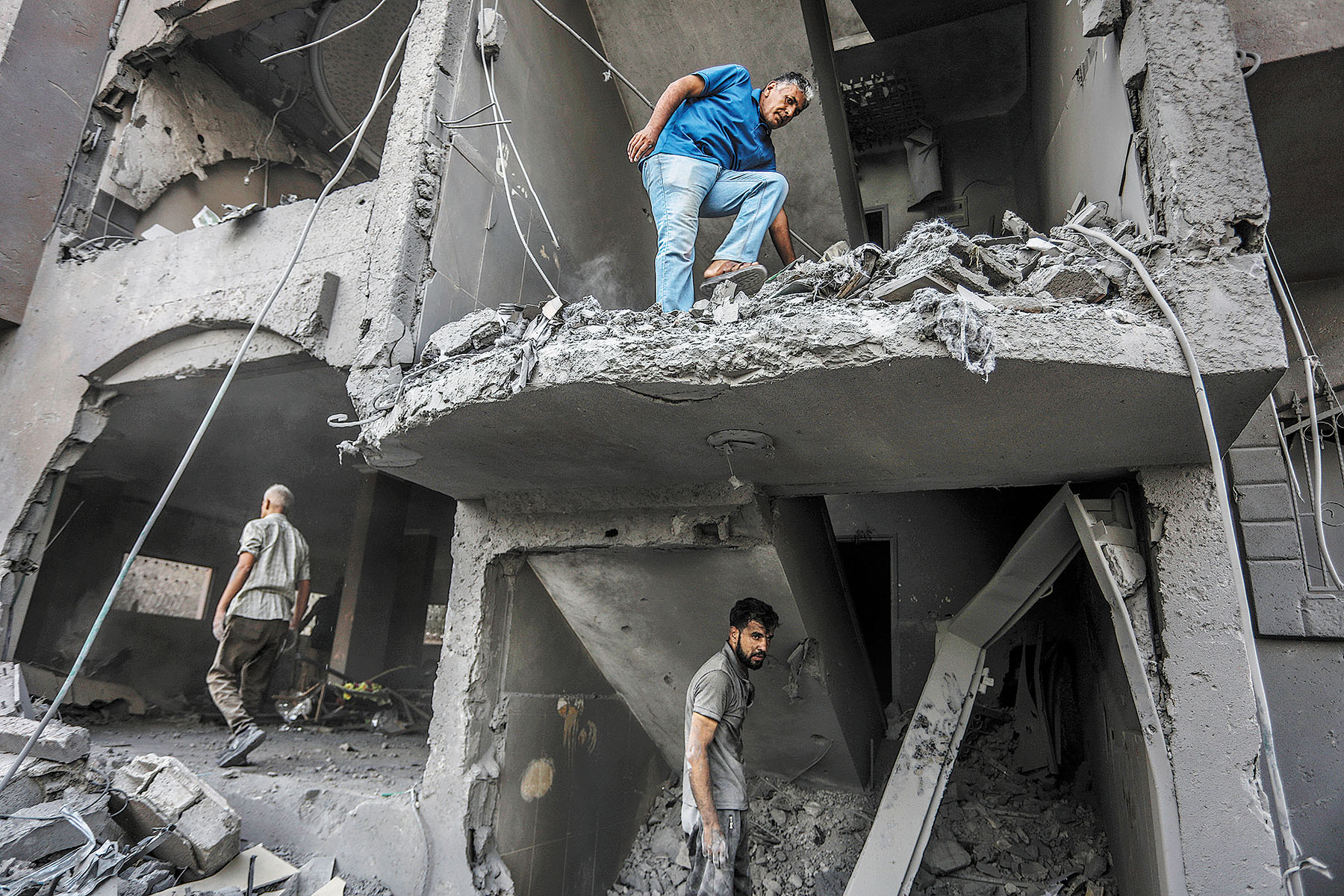Teheran slams West’s calls to show restraint as Washington approves fresh arms sales to Tel Aviv

Iran has stressed its right to self-defense regarding possible retaliation against Israel over last month’s assassination of Hamas leader Ismail Haniyeh in Teheran.
It also called for Western powers to pressure Tel Aviv into a cease-fire in Gaza instead of dictating to Teheran what it should do while Israeli bombings in the region continue.
Iran also noted that Washington has approved a multi-billion-dollar arms deal with Israel before getting Tel Aviv to accept an urgent and permanent end to fighting in Gaza, amid a surge in Palestinian civilian deaths in recent months.
On Aug 13, Nasser Kanaani, spokesperson of Iran’s Ministry of Foreign Affairs, criticized the joint statement by France, Germany, and the UK on the contentious Middle East issue.
Kanaani accused the Western countries of ignoring Israel’s crimes against the Palestinians while dictating to Iran what response measures it should or should not take.
“The statement by the three mentioned countries, without making any objection against the Zionist regime’s offenses and international crimes, shamelessly demands the Islamic Republic of Iran not take any deterrent measures against the regime that has violated its sovereignty and territorial integrity,” Kanaani said, according to the official website of the Ministry of Foreign Affairs of Iran.
Israel is suspected to be behind the assassination of the Hamas leader on July 31 but Tel Aviv has not publicly confirmed carrying out the attack.
When Iranian President Masoud Pezeshkian had a phone talk with British Prime Minister Keir Starmer on Aug 12, Pezeshkian warned that continued support of the Western states has emboldened Israel, undermining peace and security at the regional and global levels, the Islamic Republic News Agency (IRNA) reported.
“The situation in the Middle East is highly volatile and if global powers aren’t cautious, it could escalate into a world war,” Abdul Wahed Jalal Nori, an analyst and lecturer at the Department of Fundamental and Inter-Disciplinary Studies at the International Islamic University Malaysia, told China Daily.
The advice from US allies comes as US President Joe Biden’s administration approved more than $20 billion in major arms sales to Israel, including new F-15 fighter jets and tens of thousands of tank and mortar shells, US news outlet Axios reported.
Further, the deal also involves the sale of 30 Advanced Medium Range Air-to-Air Missiles for fighter jets.
Abdul Wahed said the timing of the announcement could reflect broader geopolitical calculations, where the US aims to maintain its influence in the Middle East, countering rival powers like China, Iran, or Russia.
Given the increasing regional turmoil, Abdul Wahed said Washington may be reaffirming its commitment to Israel’s security and military superiority, not peace.
“They don’t want peace. The situation is very dangerous. The whole world is watching. Genocide is taking place, no one is talking about it,” said Abul Wahed.
“A multi-billion-dollar arms deal to support Israel doesn’t contribute to regional peace. It only fuels more killing and destruction,” he said.
“Instead, Washington could leverage its influence to pressure Israel to end the war, stop the killing of civilians, and invest those funds in rebuilding peace,” he added.
Belal Alakhras, a political analyst and Palestinian researcher at the University of Malaya in Malaysia, noted that US approval of the arms deal with Israel contradicts its public statements on a cease-fire and “aligns it with Israel against other regional players”.
For months, he said, the US has “tried to isolate the war on Gaza”, but Israel’s inability to defeat Hamas has “led to recent escalations in Iran and Lebanon, including the assassination of Hamas leader Ismail Haniyeh in Teheran, further muddying the waters”.
“The US is not acting as a rational power considering its global interests, instead allowing itself to be influenced by Israel’s actions which appears to be marching to the beat of its own drum without strategic foresight,” Alakhras told China Daily.
Avi Melamed, a former Israeli intelligence official, noted an emerging possibility seems to be that Iran and Hezbollah may allow a diplomatic process for a cease-fire in Gaza to take precedence over their retaliatory strikes.
“Resuming talks between Israel and Hamas could provide a way to save face for all parties, leading to a cease-fire. This cease-fire would help avoid further escalation and allow each party to present it as an achievement,” Melamed said.
Contact the writers at jan@chinadailyapac.com


